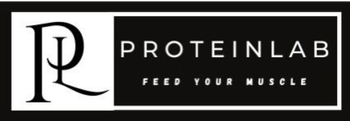
Whey Protein vs. Plant Protein: Which One Should You Choose?
Whether building muscle, losing weight, or keeping fit, millions will consider protein supplements. But, whey protein or plant-based protein: what should one go for? Both bear a certain popularity; however, each has its pros and cons. Which then suits one's goals, body, and values best?
Here, we will explore a thorough comparison based on digestibility, effectiveness, sustainability, allergies, flavors, and even more to help you decide on what protein fits your lifestyle better.
What is Whey Protein?
A complete animal protein, whey protein comes from milk during cheese production. It is the liquid that separates from the curds during cheese production. This protein contains all nine essential amino acids and is especially rich in BCAAs such as leucine, which plays an important role in muscle protein synthesis.
Whey Protein Types
- Whey Protein Concentrate (WPC)- 70% to 80% protein, fat, and some carbohydrates.
- Whey Protein Isolate (WPI)- 90%+ protein with least fat and lactose.
- Whey Protein Hydrolysate (WPH)- It is predigested and is absorbed faster and is suitable for an upset stomach.

What is Plant Protein?
Plant protein means proteins marketed from plant sources that include peas, brown rice, hemp, soy, quinoa, chia, and pumpkin seeds. Not all the plant sources are complete proteins, so many protein powder sellers combine two or more sources to have a complete amino acid profile.
Common Sources of Plant Protein Powders
- Pea Protein: BCAA-rich and iron-rich.
- Brown Rice Protein: Easy to digest, but has a lysine deficiency.
- Hemp Protein: High in omega-3 fatty acids and fiber.
- Soy Protein: Complete protein, very similar to whey.
- Mixed Plant Blends: Mixed to provide all essential amino acids.

Digestion: Which One Is Easier on the Stomach?
Whey protein is an ideal protein for recovery. It quickly delivers amino acids to muscles, which stimulate muscle repair and growth. For people who are lactose intolerant. However, fast absorption may cause gastrointestinal discomfort.
Plant proteins, especially those rich in fiber, tend to be absorbed gradually. Though such slow absorption may be preferred to some extent for the sake of inducing satiety, it may not be as advantageous for muscle synthesis immediately after exercise conditioning unless it is prepared for fast absorption.
Effectiveness: Muscle Building and Performance
For muscle building and repair, whey protein gets the biggest punch. It is high in branched-chain amino acids (BCAAs) like leucine, which trigger muscle protein synthesis with greater potency. Plant proteins can still work-well, especially the blends. However, much of these are served in larger amounts to match whey performance.
Taste and Texture: What Is More Enjoyable?
Whey protein usually has a smooth and creamy consistency and is found in a variety of flavors like chocolate, vanilla, cookies and cream, and so many more. It pairs perfectly well with milk or water and is often enjoyed for that milkshake-type texture. Plant protein, on the other hand, can sometimes be gritty, earthy, or chalky, especially if it's single-origin. Though newer blends with natural sweeteners and improved processing taste so much better than they used to.
Weight Loss and Appetite: Which Makes You Hungry?
Both whey protein and plant proteins assist weight management because they make you feel full and reduce cravings. Plant proteins tend to have more fiber content, which helps to keep up that feeling of fullness. Whey protein has also been shown to help reduce muscle loss while in a calorie deficit, making it virtually an inefficiency to burn more calories at rest.
Use Cases: Which Protein Fits Your Goals?
Goal | Best Choice |
Quick Post-Workout Recovery | |
Protein Vegan or Dairy Free Diet | |
Muscle Building | Both (With Proper Dosing ) |
Gut Health | |
Budget Option | |
Eco-Conscious Living | |
Sensitive Stomach |
Be safe and rest assured, you are getting 100% authentic products at the lowest price when you purchase at Proteinlab Malaysia.
You can also like our Facebook page for more promotional news at:
Or you can also follow our Instagram for more nutrition tips at:
